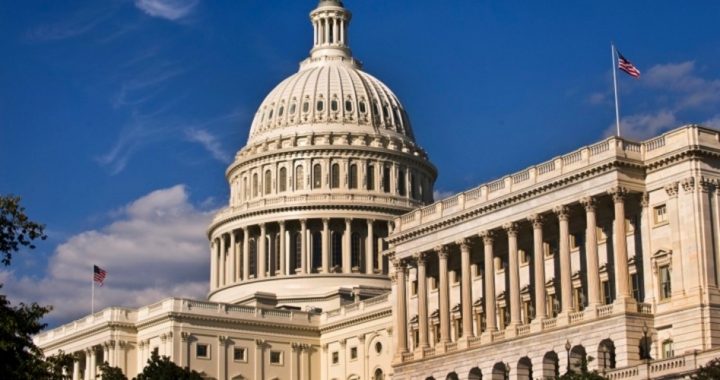
On Tuesday, lawmakers returned to Washington where they will grapple with tight deadlines on a number of key votes, which include the Iran nuclear deal and a government spending bill that could lead to a potential government shutdown.
After an eight-week summer break, the congressional calendar will be jammed with votes that are both significant and controversial. Items such as increasing the government’s borrowing authority above the already absurd $18.1 trillion cap to avoid a federal default are among the top priorities, as well as a highway bill, numerous tax breaks, and a defense policy bill that Obama has already threatened to veto.
On the upcoming Iran deal vote, Fox News reports, “Both GOP-controlled chambers are expected to pass motions of disapproval for the deal. But President Obama is expected to veto the motions and ultimately complete his historic foreign policy deal because neither chamber has the two-thirds majority to override the presidential veto.”
For some conservatives, the Iran deal — which sets out to curtail Iran’s nuclear development program in exchange for easing of economic sanctions — offers up far too many concessions.
But the Associated Press reports that Democrats “have already demonstrated they have the votes to sustain a promised Obama veto of a resolution challenging the hard-won agreement.”
Meanwhile, President Obama must sign a stopgap spending bill by September 30, but the possible addition of a Planned Parenthood funding provision in the government spending bill could result in a government shutdown.
During a procedural vote last month, Senate Republicans failed to pass legislation that would have barred all federal funds to Planned Parenthood. With just 53 votes, the Republicans failed to secure the supermajority they needed to debate the standalone bill. For frustrated conservatives who have been unable to advance a Planned Parenthood defunding bill, the Continuing Resolution (CR) presents an opportunity to achieve the goal of cutting taxpayer funds to an organization that treats aborted fetuses as nothing more than profitable commodities.
Planned Parenthood, which is responsible for approximately 300,000 abortions each year, has received federal funding since 1970, when President Richard Nixon signed the Family Planning Services and Population Research Act. Constitutionalists have long observed that the federal government has no authority in the U.S. Constitution to fund any of Planned Parenthood’s activities, and calls to cut funding to Planned Parenthood have increased after the release of undercover videos recorded by the Center for Medical Progress in which officials of the abortion giant discuss the sale of body parts of aborted babies. Critics contend that the scenes captured in the videos are not only despicable but illegal if the organization was making profits on the organ sales.
However, GOP leaders are not in agreement on using the spending bill to cut Planned Parenthood’s funding.
Senate Majority Leader Mitch McConnell said last week that tying Planned Parenthood’s funding to a spending bill would be futile because Obama would reject such a bill.
“The way you make a law in this country [is[ the Congress has to pass it, and the president has to sign it,” McConnell told WYMT-TV.
“The president’s made it very clear he’s not going to sign any bill that includes defunding of Planned Parenthood — so that’s another issue that awaits a new president hopefully with a different point of view.”
And while there is not a current consensus amongst Republicans that they should go this route, Democrats have already drawn a line in the sand. “The move is theirs,” said Senate Minority Leader Harry Reid (D-Nev.) of Republicans. “There is no such thing as a clean CR for Republicans.”
House Minority Leader Nancy Pelosi (D-Calif.) said last month that she was hopeful that divisions among Republicans on this issue will result in a failure to reach an agreement and permit Democrats to have more influence over the CR. “If they don’t have the Republican votes to pass it, then hopefully we can have some influence over what is in that CR,” she said.
The Associated Press reports that Republicans are currently considering separate legislation this month that would cut Planned Parenthood’s funding. The bill, according to the AP, “would advance free of a filibuster threat by Senate Democrats,” but would most certainly be vetoed by President Obama.
Aside from the issue of Planned Parenthood’s funding, the spending bill debate will include discussions on the automatic spending cuts to domestic agency budgets. Senator McConnell has already indicated that he would be open to discussing increases to domestic programs along with budget relief for the Pentagon, but both parties will have to reach an agreement on spending cuts to accompany the increases.
While some are speculating that Republicans will attempt to advance a bill that would maintain most budget levels with increases to just a few agencies, the White House has already promised to block those efforts.




